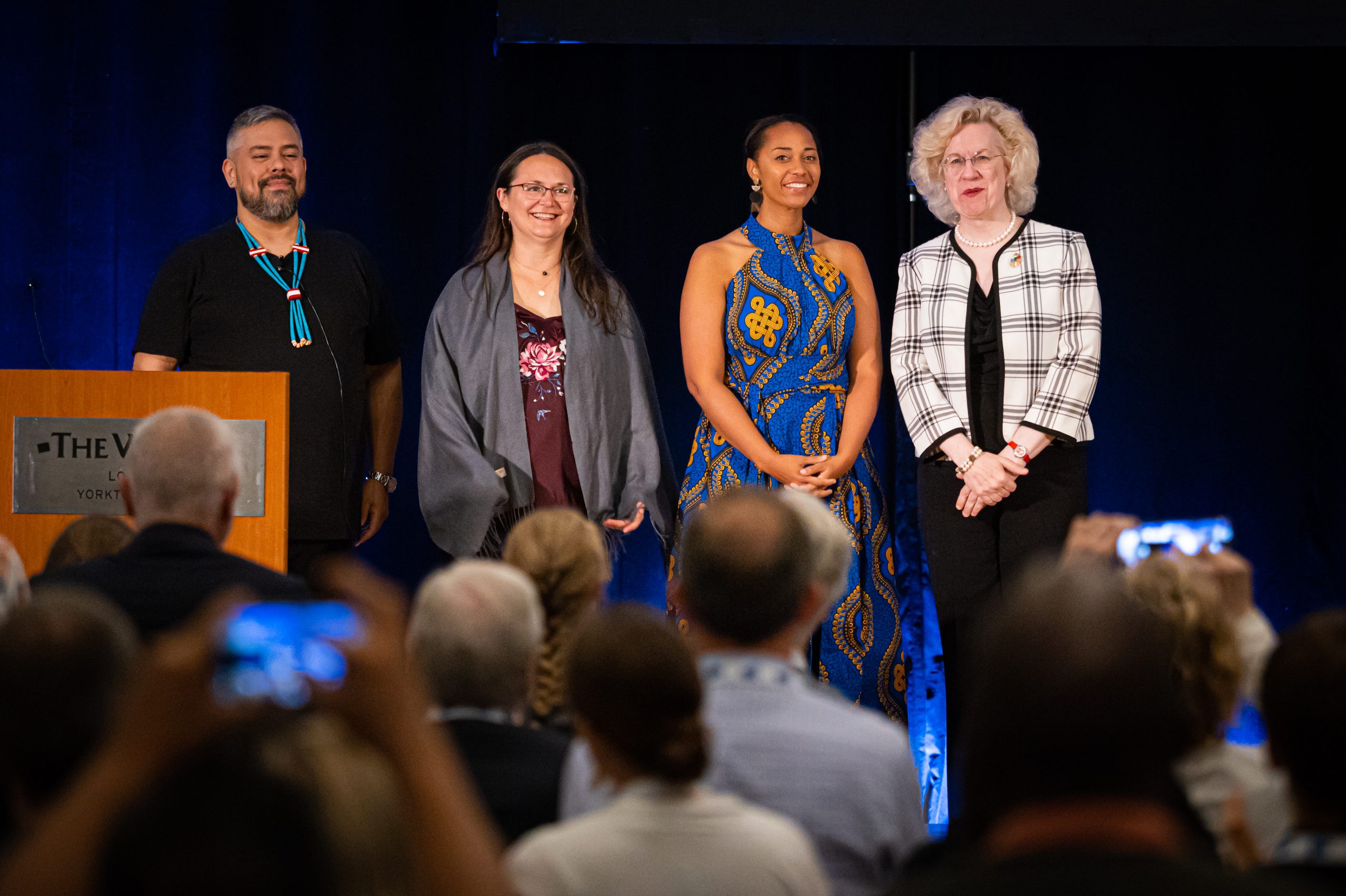To celebrate the latest episode of the Piano Inspires Podcast featuring Ann DuHamel, we are sharing an excerpted transcript of her conversation with Pamela Pike. Want to learn more about DuHamel? Check out the latest installment of the Piano Inspires Podcast. To learn more, visit pianoinspires.com. Listen to our latest episode with DuHamel on Apple Podcasts, Spotify, YouTube, or our website!

Ann DuHamel: Right around the time I was about to record that [Brahms and Transformation Project], there’s this explosion—what I perceive as an explosion—of news about climate change. Of course, I try to pay attention to the news and my husband is sort of a NPR junkie, so there’s news going on all the time in our house. But I just felt like what used to be an occasional news item, like once a month, twice a month, suddenly became like every week, every day, every hour, several times an hour. It just hit me! First, what I wanted to do was crawl under the covers and read Harry Potter. You know it’s like—you want to escape, because it is overwhelming, totally overwhelming.
Pamela Pike: But you didn’t. You used your music.
AD: I did. I mean, I was thinking, “What can I do?” Because I try to do things that are thoughtful about the environment. I live in a small town so I can walk to work. It takes me twenty-two minutes to walk to my office. I don’t walk when it’s -40 [degrees Fahrenheit] or when it’s icy, but I can walk to school. I walk to the grocery store; I walk to the gym; I walk to the movie theater. When I moved into my house, it was like all lawn, and every year I take out more lawn and put in more native plants. So, you know, trying to do things like that. I planted trees last year. We recycle; we compost. We do these things, but it didn’t feel like it was enough. I was thinking, “Well maybe I can do a musical program that’s music about climate change.” And this idea, like, actually, that idea gave me some hope. It gave me some courage. So this project evolved out of a feeling of despair and has become something—it actually feels, very significant to my life’s work.
PP: Oh it is! I mean, it is. It has to be. I’m glad it feels that way, because as an outsider, it certainly looks that way. And I think it speaks to the power of music. It shows how you can take something that doesn’t seem like it’s related to your professional life, but actually you can use it to change people’s minds and hearts and, hopefully, actions.
AD: That is my hope!
PP: Talk about programming a little bit. I think you’re masterful at your programming. I think too many people think, “I’m just going to program and not worry about my audience.” I don’t think you believe that.
AD: I don’t believe that. It’s really important to have works that your audience can engage with, and even if sometimes they challenge your audience, I think you want to have a balance. So, yes. When I’m programming—I mean I have many pieces in this project. Sixty—it’s going to be more than sixty because I’ve also started to commission some underrepresented composers. But thinking about, like, “How can I have a theme?” I have a program that I could do that’s all pieces related to water. I think about what narrative is happening when I do the program. “Where does it start? Where does it take people? Where does it end?” This year, I’ve been on sabbatical, and I haven’t been playing all sixty pieces when I’ve been playing because it’s like more than eight-and-a-half hours of music. I say it’s more than eight and a half. I haven’t actually counted; it’s probably like twelve. I don’t know! It’s a lot of music. So I play a recital that’s around seventy minutes of music. But some places want less, so I can—it’s very flexible. Some places, they’re like, “We can do up to two hours.” So then I do a little more. But I think about, you know, “Where does it start? How does it go? Where does it end? What’s powerful?” And I think about, like, “Where do I put the pieces that are really dissonant and challenging, and crunchy, and demanding? Then, how can I have something that follows it that is more consonant? How can I have a piece that’s beautiful, and where do I put that, and how does it have a big impact?” So, yeah, it’s—yes, I do think about that.
PP: I mean it’s critical. It’s critical for your audience’s participation—
AD: Yes, and their engagement.
PP: Exactly.
If you enjoyed this excerpt from Piano Inspires Podcast’s latest episode, listen to the entire episode with Ann DuHamel on Apple Podcasts, Spotify, YouTube, or our website!
MORE ON CONNOR CHEE
- MAGAZINE ARTICLE: Book Review: Weight in the Fingertips: A Musical Odyssey from Soviet Ukraine to the World Stage by Inna Faliks by Ann DuHamel
- MAGAZINE ARTICLE: Autumn 2023: Book Reviews by Ann DuHamel and Nicole Douglas
- MAGAZINE ARTICLE: Winter 2023: Book Review by Ann DuHamel